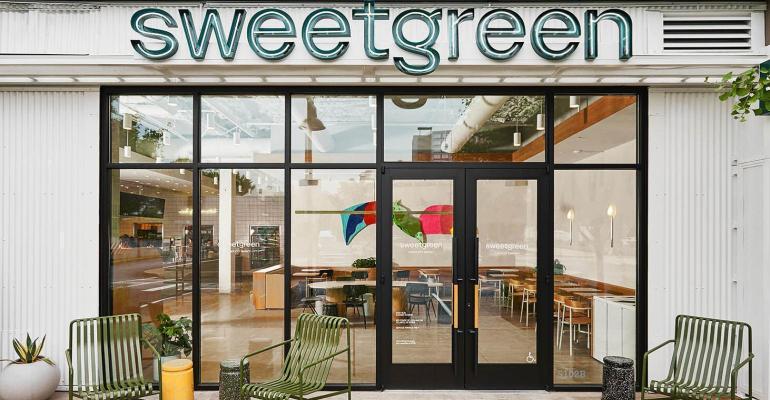According to a new lawsuit filed with the New York federal court, the plaintiff is alleging that Sweetgreen’s website does not meet standards expected under the Americans with Disabilities Act (ADA). The lawsuit was originally filed on January 10.
Plaintiff Ali Colak claims that the Los Angeles-based fast-casual chain’s website isn’t fully accessible to and equally usable by individuals who are blind or visually impaired, which would be a violation of the ADA.
The claim alleges that Sweetgreen’s website “contains access barriers to screen-reading software used by individuals who are blind or visually impaired to access the internet.”
“Because Defendant’s website … is not equally accessible to blind and visually impaired consumers, it violates the ADA,” the class action lawsuit states.
The Americans with Disabilities Act was signed in 1990 by President George H.W. Bush. Title III of the ADA decreed that all businesses open to the public were required to be accessible and to make “reasonable modifications” to that end.
Colak, who is blind, wants to represent a nationwide class and a New York City subclass of all legally blind individuals who have attempted to access Sweetgreen’s website and were subsequently denied equal access to the enjoyment of services offered.
According to the lawsuit, 8.1 million people in the United States are visually impaired, including 2 million who are blind..
Further, the lawsuit alleges that the Sweetgreen website is missing alt-text, hidden elements on web pages, incorrectly formatted lists, and unannounced pop-ups, among other things.
Colak also claims that in addition to violating the ADA, Sweetgreen is violating The New York City Human Rights Law.
The New York City Human Rights Law cites that “prejudice, intolerance, bigotry, and discrimination, bias-related violence or harassment and disorder occasioned thereby threaten the rights and proper privileges of its inhabitants and menace the institutions and foundation of a free democratic state.”
The defendant is demanding a jury trial and requesting declaratory and injunctive relief along with an award of compensatory, statutory and punitive damages for herself and all class members.
Several other ADA lawsuits have been brought against restaurants in the past.
In California, Albert Dytch, a 71-year-old man with muscular dystrophy, has filed more than 180 ADA lawsuits as of 2023.
In January, Eyewitness News 7 reported that one person who is legally blind had sued dozens of California restaurants for ADA violations over the past few years. One complaint against the restaurant Sticky Rice claimed that the restaurant’s website wasn’t accessible to blind customers.
One restaurant owner on Reddit wrote about their own experience with an ADA lawsuit, seeking advice from others on the social media site about how to handle a lawyer’s threat to sue over ADA infractions or give the plaintiff $6,000.
Users on the site were quick to point out that some lawyers and clients go around to restaurants and look for violations to “extort” money from businesses rather than giving a warning and the small business a chance to fix it.
In the past, complaints have been filed against the websites at Outback Steakhouse, Domino’s Pizza, Texas Roadhouse, Chick-fil-A, P.F. Chang’s, Olive Garden, and Papa John’s. At the time, Restaurant Hospitality covered a story about websites being the latest target for ADA lawsuits, something that has only increased since the article was published.

